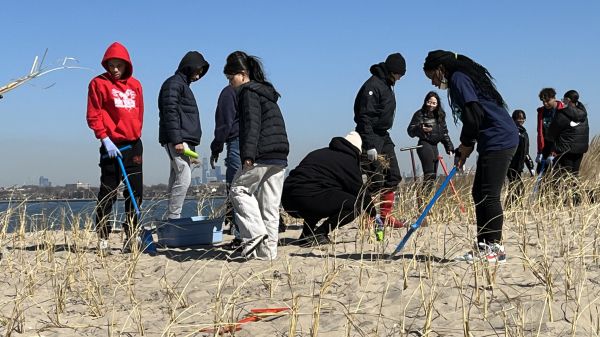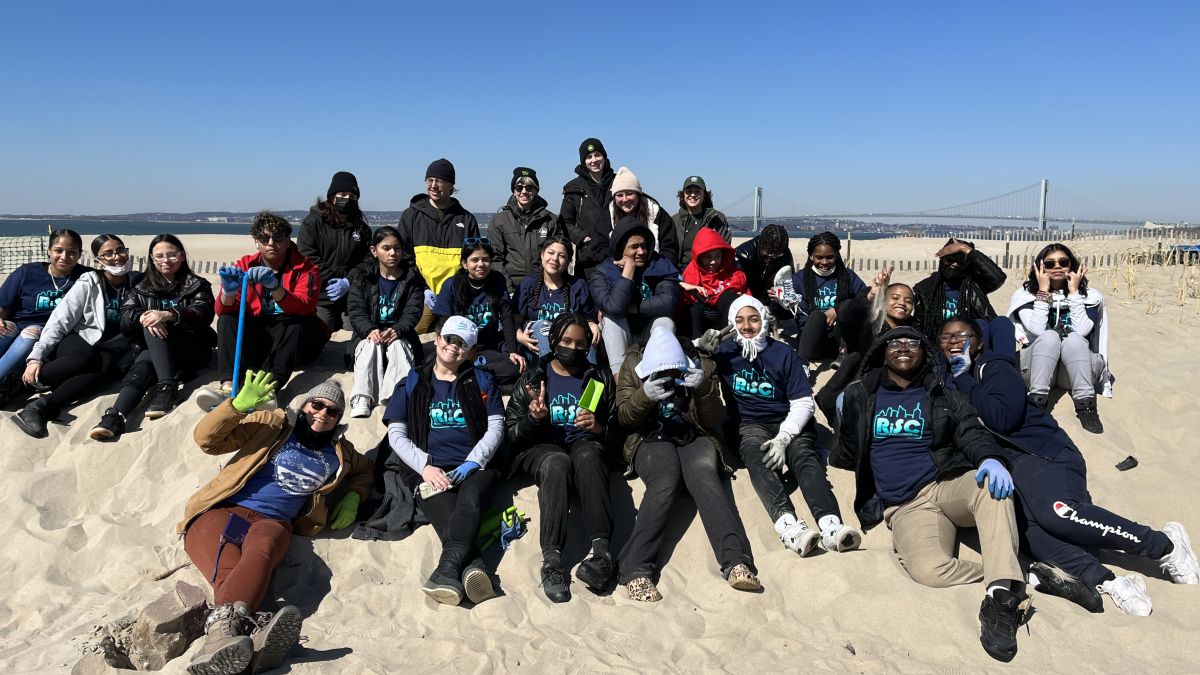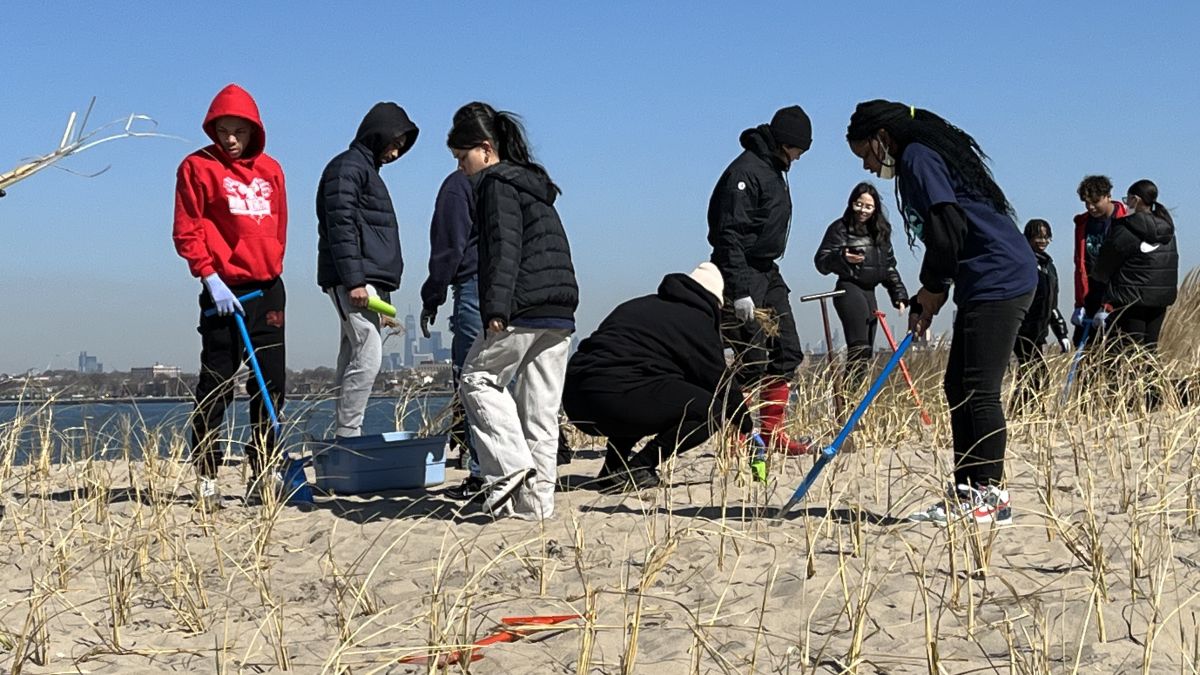National Wildlife Federation’s Toolkit for Whole Community Climate Resilience

Written by Elizabeth (Liz) Soper, senior director of K–12 education, National Wildlife Federation
Since its inception in 2016, the National Wildlife Federation (NWF) has spearheaded the implementation of the Resilient Schools and Communities (RiSC) program in New York. Initially, the RiSC program was brought to life through a collaborative partnership between NWF, Brooklyn College, the Science and Resilience Institute at Jamaica Bay, and New York Sea Grant. It expanded in 2018 to include a multitude of additional partners and furthered its impact, beginning in 2020, through intensive work in frontline communities in Coney Island, New York, Cape May County, New Jersey, Loiza, Puerto Rico, and Houston, Texas.
The RiSC program seeks to bridge critical knowledge gaps by educating middle and high school students, teachers, and their communities about climate science, impacts, justice, and local resiliency solutions. This is achieved through an empowering, solutions-focused curriculum that instills hope for the future by bringing youth and community members together to learn from one another, identify a local climate impact, and take collective mitigative action.

A group of kids participating in an NWF RiSC program activity in New York. Photo credit: Emily Fano
RiSC Replication
The success of the RiSC program in New York City and its adaptations—including in the U.S. Virgin Islands, which implemented the program from 2018 to 2020 after getting slammed by two back-to-back Category 5 hurricanes in 2017—has created a successful model for climate resiliency education and action. The program won national recognition from the Federal Emergency Management Agency in May 2023 for its “outstanding efforts to increase risk awareness [and] to help advance equity and inclusion.”
In 2023, NWF undertook a multi-team strategic planning process to identify the essential elements of a successful RiSC program and envision a replication framework. NWF examined strategies for “scaling out” the RiSC model, and the preconditions and resources needed to “scale up” an innovative program and to “scale deep” to help address the values, cultural practices, and needs of a community, including investing in relationship-building to help accelerate change.
Through this process, the Resilient Schools and Communities Replication Toolkit was created to provide partners and organizations interested in delivering the RiSC program in their communities with an understanding of the “six essential sources of effectiveness” and the tools and resources necessary to jumpstart the program.
The Toolkit includes insights from experienced NWF educators, field staff, and key program stakeholders—students, teachers, community partners, and educational service providers—ensuring that RiSC is centered in the communities it serves through all aspects of the program model. This centering should address environmental justice, embrace project-based learning, and ideally be informed by an Indigenous systems thinking-based perspective that views all humans and ecosystems as interrelated.
RiSC Toolkit Components
The RiSC Toolkit provides potential replication partners with the following:
- RiSC program outcomes
- Essential sources of effectiveness
- Program model components
- Core program development and management
- Case studies
- Appendices that provide tools and resources for replication
What’s Next?
Our partners in Puerto Rico are translating the RiSC curriculum into Spanish with the hope that the Puerto Rican Department of Education will adopt it. This will allow all schools on the island to access the program resources. NWF plans to develop a standardized RiSC curriculum that explores multiple climate impacts and solutions and creates pathways to student career opportunities. We are working to grow our capacity to pilot RiSC in additional frontline communities that have been hard hit by climate impacts but have not had access to climate and resilience education. Our goal is to reach more students, educators, and communities and have maximum impact on the ground. NWF encourages interested replication partners to contact us for more information and support. Reach out to Emily Fano, NWF senior manager, Climate Resilience Education (FanoE@nwf.org).

A group of kids on a beach in New York planting dune grass as part of the NWF RiSC program. Photo credit: Emily Fano
To learn more about RiSC, visit https://www.riscnyc.org. To see the program in action, please view a short 10-minute documentary about our most recent program iteration in New York City, “Where It Floods: Planting Hope in Coney Island”: https://natwild.life/WhereitFloods
NWF would like to thank NOAA, FEMA, Con Edison, and the Kettering Family Foundation for supporting the RiSC program.